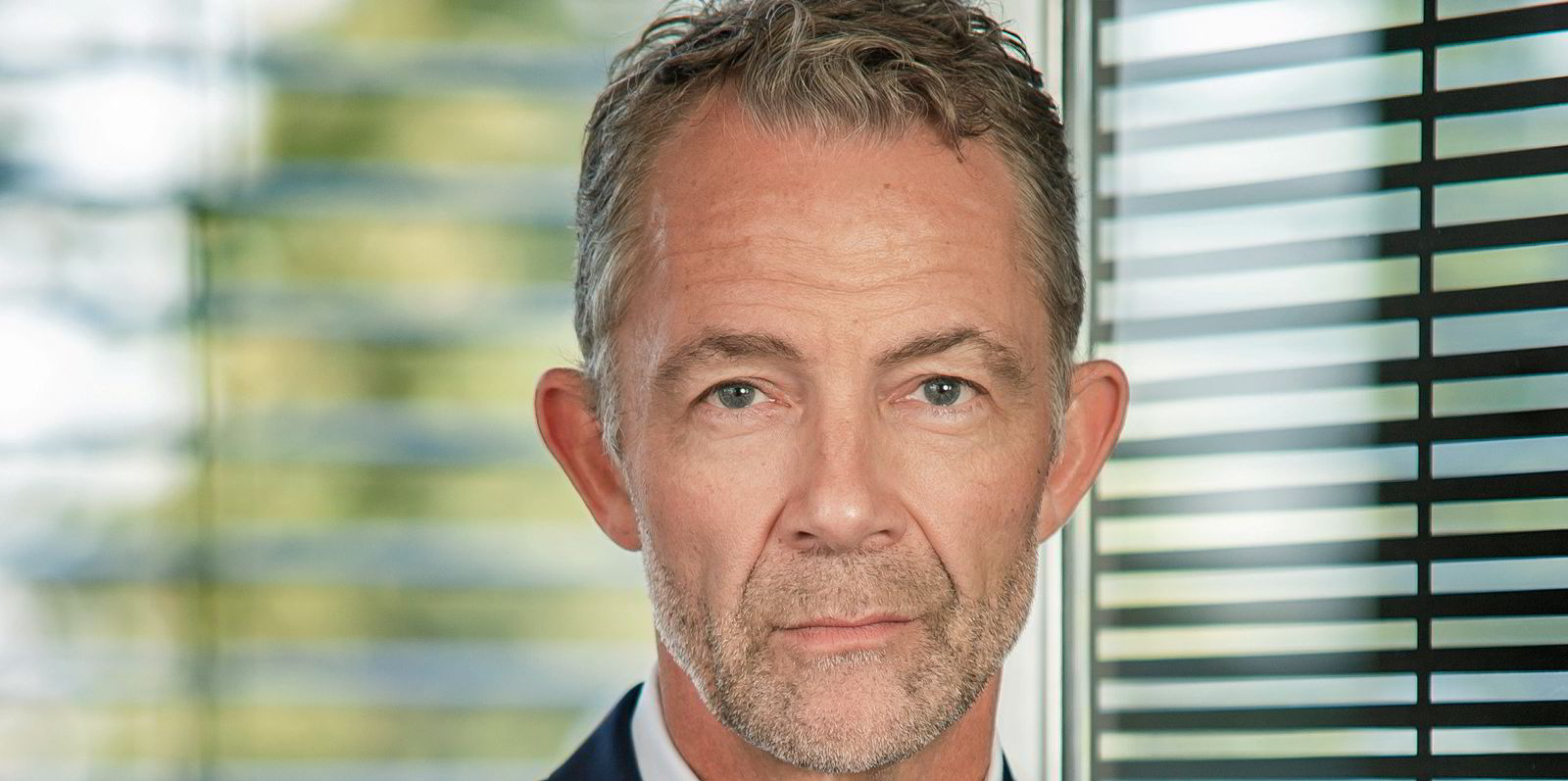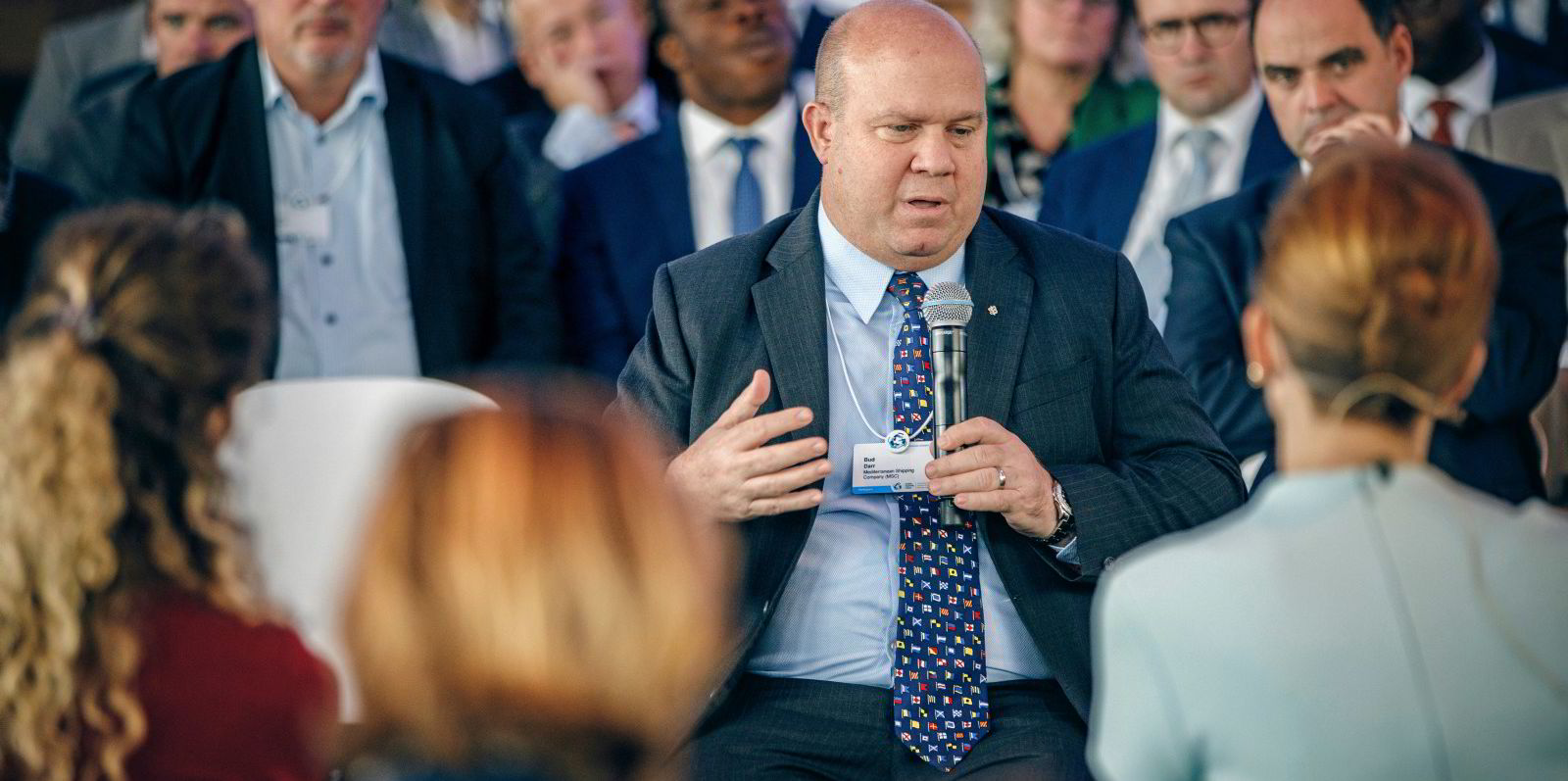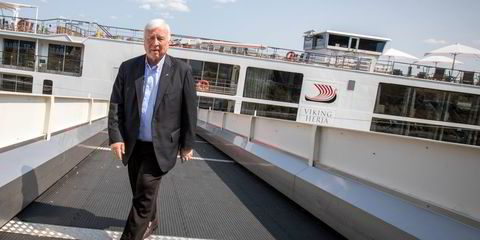The shipping sector needs to collaborate better to deal with the challenge of decarbonisation, the head of Columbia Shipmanagement (CSM) said on Thursday.
CSM chief executive Mark O’Neil said the fragmented industry could only reduce emissions and improve performance by forming partnerships with tech and other companies.
Speaking at Capital Link’s decarbonisation in shipping webinar forum, O’Neil cited Columbia’s collaborations on trials to introduce battery power to take ships the final 10 km (6.2 miles) into ports and on testing new greener fuels.
“I think our industry needs to scale up in any which way it can to confront the challenges which lie ahead,” O’Neil said.
The International Maritime Organization wants the global shipping industry to cut its emissions by 50% by 2050 compared to 2008 levels. Some countries and industry figures want to go faster and hit net zero by that date.
“We can’t achieve decarbonisation intelligently without the advances in technology without the advances in digitalisation,” O’Neil said.
“To do that effectively, a small company like Columbia Shipmanagement needs to scale up with partners around the world.
“That’s what we’ve been calling for in this industry and I think the industry is reacting well to this.”
The forum heard there were immediate gains to increase efficiencies through route and speed planning before the industry settles on bigger decisions such as the choices of less damaging fuels.
Konstantinos Kyriakopoulos, co-founder of shipping tech firm DeepSea Technologie, said using data from a large number of ships helped build models to increase efficiency.
“So we can improve with between 6% and 10% savings on the fuel consumption of our customers’ vessels just using voyage optimisation and speed optimisation, without needing to change anything else,” he said.





